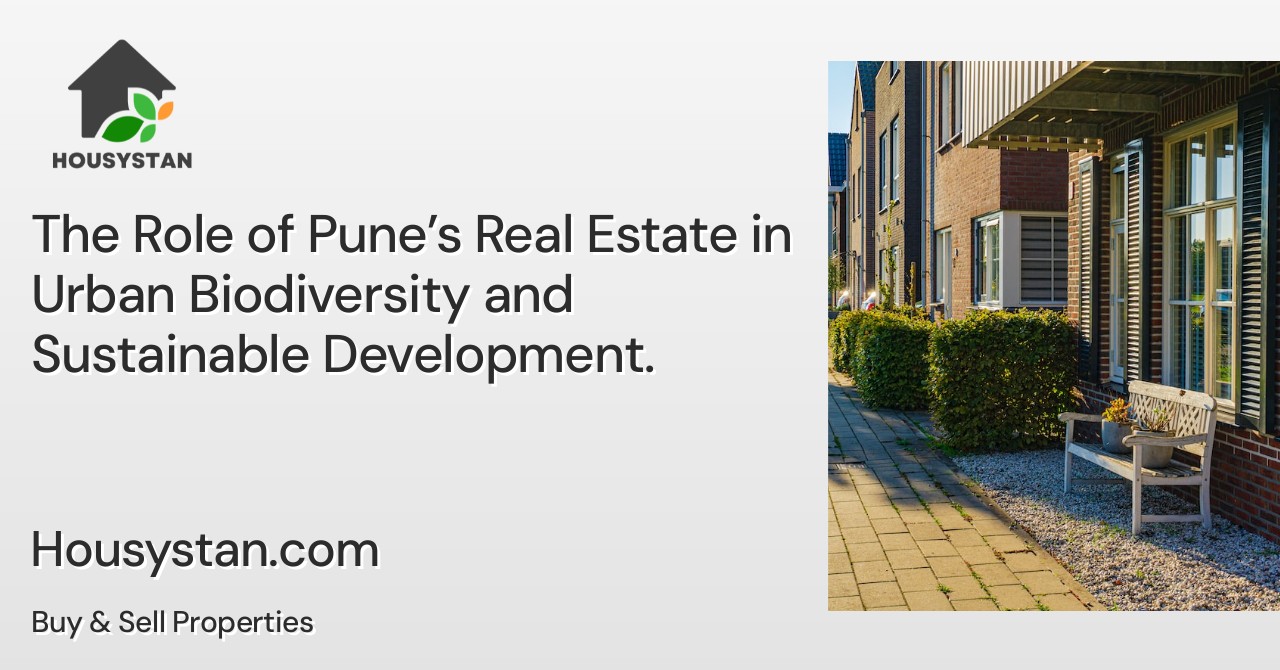The Role of Pune’s Real Estate in Urban Biodiversity and Sustainable Development
Read latest blogs and articles from Housystan

The Information mentioned here was last updated on:
29/1/2026Pune’s real estate market plays a pivotal role in shaping the city’s urban biodiversity and advancing sustainable development. As one of Maharashtra’s fastest-growing metropolitan areas, Pune has seen rapid expansion in residential, commercial, and infrastructural projects. This growth presents unique opportunities and challenges for maintaining ecological balance while meeting the needs of an ever-increasing population.
Developers in Pune are increasingly adopting eco-friendly construction methods, integrating green spaces, and prioritizing the preservation of indigenous flora and fauna within their projects. By incorporating rooftop gardens, vertical landscaping, and community parks, real estate initiatives contribute to the city’s green cover and support local wildlife habitats. These sustainable practices not only enhance the aesthetic appeal of modern developments but also improve air quality and reduce the urban heat island effect, which is particularly important in Pune’s climate.
Pune’s municipal authorities collaborate with builders to ensure adherence to environmental regulations and promote the implementation of rainwater harvesting systems, energy-efficient designs, and waste management solutions. Such measures foster a harmonious relationship between urban expansion and nature, making Pune a benchmark for cities aiming to balance development with ecological stewardship.
- Verified Tenants/Buyers
- Unlimited Property Listing
- Zero subscription/charges fee
Residents of Pune benefit from these sustainable real estate practices through improved well-being, access to recreational green spaces, and a reduction in pollution-related health risks. The city’s real estate sector is also driving awareness about the importance of biodiversity, encouraging community-led initiatives like native tree planting and conservation projects. These collective efforts help sustain Pune’s rich natural heritage, even as the city evolves into a modern urban center.
In summary, Pune’s real estate industry is instrumental in promoting urban biodiversity and sustainable development. By prioritizing eco-conscious planning and construction, Pune serves as a model for responsible urbanization in India. Stakeholders, including investors, homebuyers, and policymakers, recognize the value of integrating green solutions, ensuring Pune remains a thriving and environmentally resilient city for future generations.